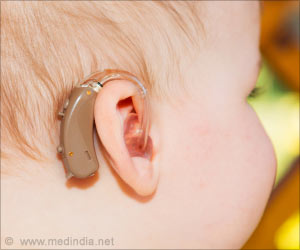Listening to music be considered as an inexpensive, non-invasive, non-pharmacological method to reduce anxiety for patients undergoing elective eye surgery.

‘An inexpensive, non-invasive, non-pharmacological method to reduce anxiety for patients undergoing elective eye surgery is to make them listen music.’





According to the researchers, being awake during surgery is particularly stressful for patients. The findings showed a significant reduction in anxiety among patients who listened to music (score 23 out of 100) compared to those who didn't (score 65 out of 100). Patients who listened to music received significantly less sedatives during surgery compared with the non-music group (16 percent vs 32 percent). Further, the postoperative satisfaction was significantly higher in the music group (mean score 71 out of 100 versus 55 for the non-music group). "The objective is to provide music to all patients before eye surgery. We intend to assess the procedure in other type of surgeries, including orthopaedics where regional anaesthesia is common," Guerrier added.
The pilot study evaluated the effect of music on anxiety in outpatients undergoing elective eye surgery under topical (local) anaesthesia. The team evaluated a total of 62 patients who heard relaxing music or no music for around 15 minutes just before cataracts surgery.
The selected 16 pieces of music of various styles including jazz, flamenco, Cuban, classical and piano, aimed at preventing and managing pain, anxiety and depression. A surgical fear questionnaire (SFQ) was also used to assess anxiety before and after a music session. The results were presented recently at Euroanaesthesia 2016 in London.
Source-IANS















